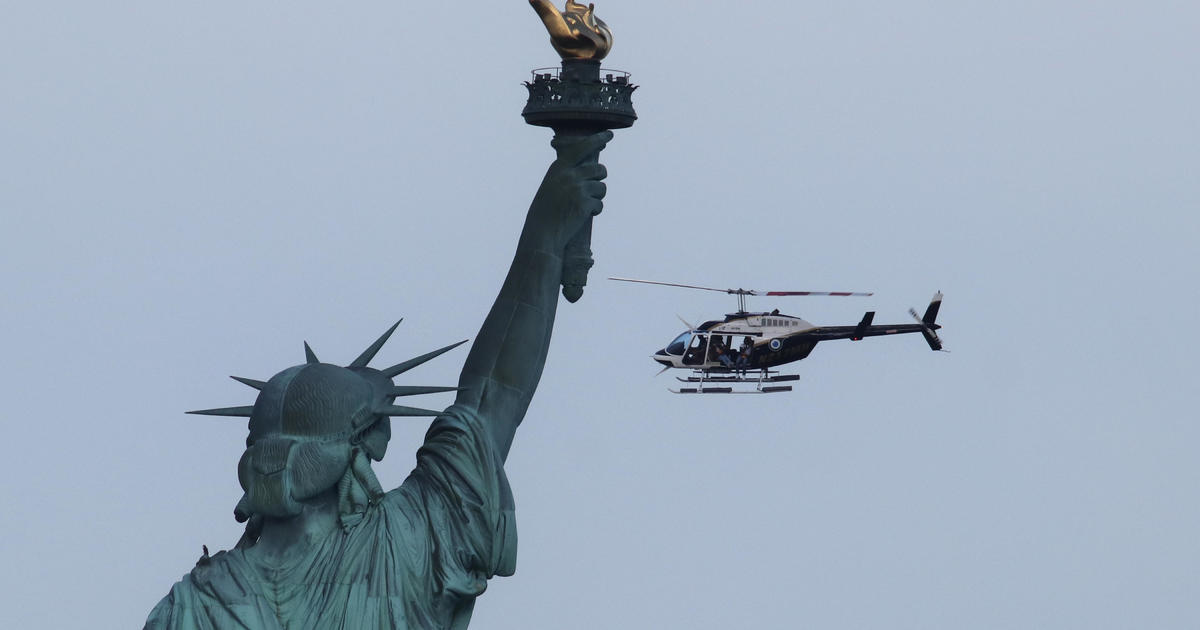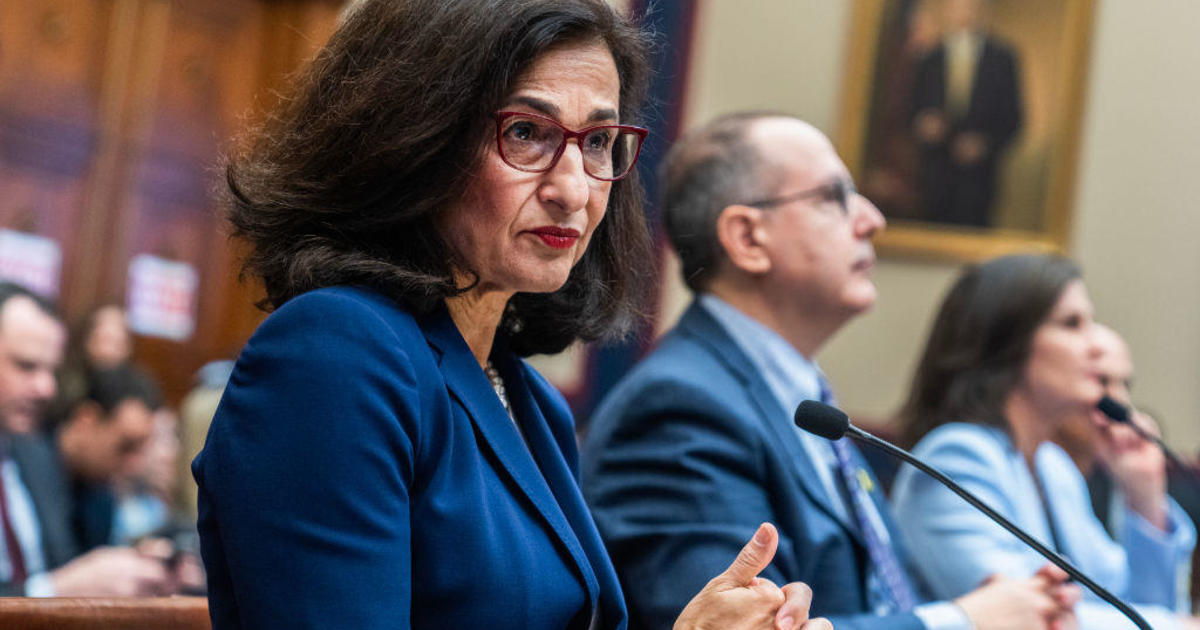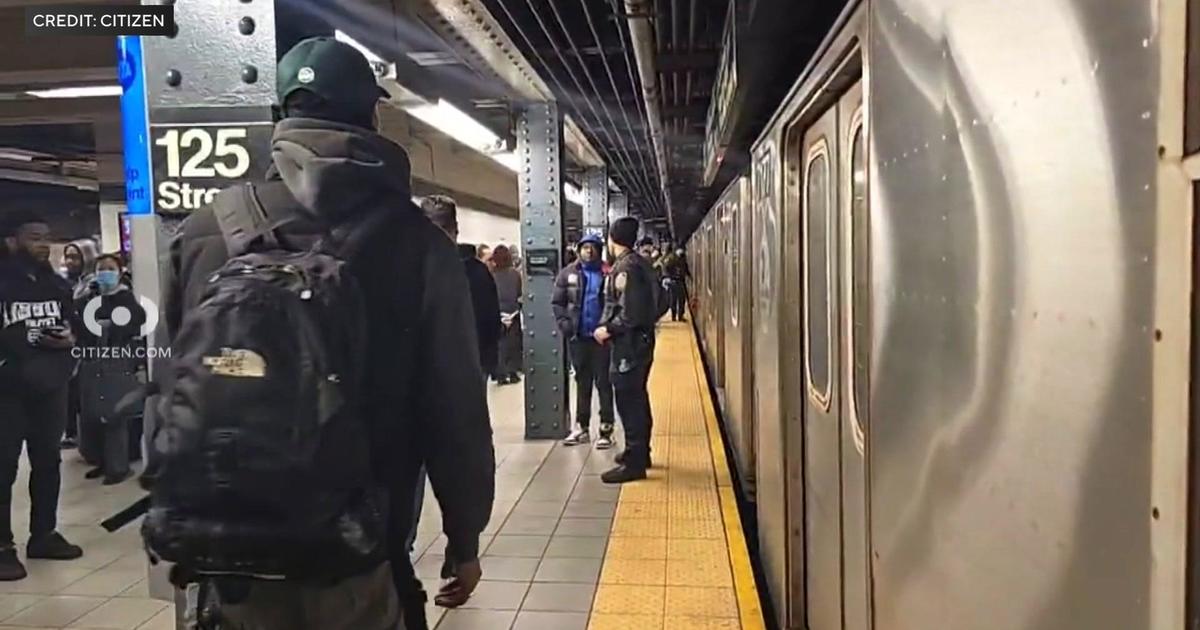Feds, States Square Off In Court Over Trump Travel Ban
SAN FRANCISCO (CBSNewYork/AP) -- A panel of federal appellate court judges heard arguments Tuesday in the pitched fight over President Donald Trump's travel and refugee ban in a case headed for a possible final face-off at the Supreme Court.
A ruling in the case could come as early as Wednesday.
As CBS2's Tony Aiello reported, President Trump has left no doubt that he believes the legal challenge to his executive order is wrong and dangerous.
"ISIS said, 'We are going to infiltrate the United States, and other countries through the migration," he said.
The San Francisco-based 9th U.S. Circuit Court of Appeals held the telephone hearing Tuesday afternoon with lawyers from the federal government and states suing Trump.
The hearing was live-streamed on the internet, and at one point more than 130,000 people were listening in.
At the start of the hearing, the judges expressed skepticism over the need for the ban.
Circuit Judge Michelle T. Friedland, who was appointed by President Barack Obama, asked whether the government has any evidence connecting the seven predominantly Muslim nations covered by the ban to terrorism.
August Flentje, special counsel to the assistant attorney general, said the government is aware of some foreign nationals who have been arrested in the U.S. since Sept. 11 but he didn't give details of the evidence.
He also said president has broad power to enforce national security.
Flentje said further that some Somalis in the U.S. have been connected to a terror group. He said the case was moving fast and the government had not yet included evidence to support the president's ban.
Judge Friedland had asked if the government had connected any immigrants from the seven countries to terrorism. Flentje cited the Somalis in the U.S. tied to the al-Shabab terrorist group.
Flentje said the president has the right to assess the risk to national security and based the countries listed on determinations by Congress and his predecessor in the last two years.
Meanwhile, Washington State Solicitor General Noah Purcell Purcell said halting the executive order has not harmed the U.S. government. Instead, he told the judges that the order had harmed his state's residents.
"We had students and faculty at our state universities who were stranded overseas. We had families that were separated. We had longtime residents who could not travel overseas to visit their families without knowing that they would be able to come back," Purcell said.
The final minutes of the hearing were largely devoted to whether the travel ban was intended to discriminate against Muslims. Judge Richard Clifton wanted to know how the order could be considered discriminatory if it potentially affected only 15 percent of the world's Muslims, according to his calculations.
In response, Purcell argued that it is remarkable to have this much evidence of discriminatory intent this early in the case. He mentioned Trump's campaign statements about a Muslim ban and public statements from adviser Rudy Giuliani that he was asked to help devise a legal version of the Muslim ban.
A Justice Department lawyer argued that the courts shouldn't question the president's authority over national security based on newspaper articles. But under questioning from Clifton he conceded that he doesn't dispute that the statements were made.
On Monday the Justice Department filed a new defense of Trump's ban on travelers from seven predominantly Muslim nations.
The lawyers said the travel ban was a "lawful exercise'' of the president's authority and said courts should not be "second-guessing a formal national security judgment made by the president."
"He has broad discretion to do what is in the nation's best interest to protect our people, and we feel very confident that we will prevail in this matter," said White House Press Secretary Sean Spicer.
Trump himself added, "As president, I have no higher duty than to protect the American people."
The filing was the latest salvo in a high-stakes legal fight surrounding Trump's order, which was halted Friday by a federal judge in Washington state.
Washington state and Minnesota sued Trump last week, saying the ban harmed residents and effectively mandated discrimination.
Trump has harshly criticized the legal maneuvers, tweeting Saturday about the "so-called judge" who ruled against the order.
In another tweet Sunday, he wrote, "If something happens blame him and the court system."
Lawyers for two states urged the California-based appeals court not to reinstate Trump's ban, saying in court briefs the ban would "unleash chaos again, separating families, stranding our university students and barring travel," CBS2's Dick Brennan reported.
On Monday, the president of the American Bar Association fired back.
"Personal attacks on judges are attacks on our constitution," said ABA President Linda Klein. "Let us be clear. The independence of our judiciary is not up for negotiation."
Meanwhile, the White House released a list Monday of 78 attacks it describes as "executed or inspired by'' the Islamic State group and says most did not get sufficient media attention.
Trump claimed during a speech earlier Monday that the media was deliberately ignoring attacks. He said that, "in many cases, the very, very dishonest press doesn't want to report it,'' adding, "They have their reasons.''
On the list, which CBS News reported was riddled with spelling errors, was the San Bernardino shooting in December of 2015 that left 14 people dead and the June 2016 Orlando nightclub massacre where 49 people were killed.
The list also included the case of Ahmad Khan Rahimi, who is accused of detonating a pipe bomb along the route of a Marine Corps charity race in Seaside Park, New Jersey and planting two pressure cooker bombs in Chelsea last year.
It also had incidents like the 2016 truck massacre in Nice that killed dozens and received widespread attention, another truck attack at a popular Christmas market in Berlin that killed 12 people as well as less high-profile incidents in which nobody was killed.
White House Press Secretary Sean Spicer told reporters on Air Force One that the president didn't really mean that terror attacks received no coverage, CBS New reported.
"He felt that members of media don't always cover some of those events to the extent that other events might get covered," Spicer said. "Like a protest gets blown out of the water, and yet an attack or a foiled attack doesn't necessarily get the same coverage."
A federal appeals court in Boston upheld the ban. If different courts reach different decisions, that makes it the case more likely to reach the Supreme Court.
(TM and © Copyright 2017 CBS Radio Inc. and its relevant subsidiaries. CBS RADIO and EYE Logo TM and Copyright 2017 CBS Broadcasting Inc. Used under license. All Rights Reserved. This material may not be published, broadcast, rewritten, or redistributed. The Associated Press contributed to this report.)



